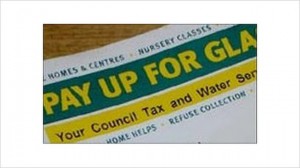
The Scottish Liberal Democrats launched our plans to make the council tax fairer on Wednesday 30th March.
Our proposal is to exempt less well off pensioners from council tax. A pensioner on an income of less than £10,000 will pay nothing at all in council tax. Our proposals will mean a saving of up to £400 from a typical Band D bill.
Pensioners often pay hundreds of pounds in council tax. But Liberal Democrats have solutions for Scottish pensioners, whose income is just above the state pension.
A third of Scottish single pensioner households have incomes of less than £10,000. That’s less than £200 a week. Under the current system, a single pensioner living in a Band D house gets some help, but still has to pay out £406 annually. That’s over £40 a month out of an income of less than £800 when she has to feed and clothe herself and heat her house too. Under the Liberal Democrat plans she would pay nothing in Council Tax.
How does this compare to the SNP and Labour policy of a Council Tax freeze?
The SNP and Labour council tax freeze will save the pensioner £22 on her £800 bill. Under our plans she saves up to £406.
What about the Conservatives policy?
The Scottish Conservatives have said they will cut the council tax bill by £200 for any household containing a pensioner.
The pensioners on £7k, £8k and £8.5k will pay nothing under either party.
The pensioner on £9k will pay nothing under the Lib Dems but £55 under the Conservatives.
The pensioner on £9999 will pay nothing under the Lib Dems but £206 under the Conservatives.
Very wealthy pensioners – such as Annabel Goldie and other Conservative MSPs – will not benefit from our policy but will benefit by £200 under Conservative policy.
What about Local Income Tax?
We are still in favour of local income tax. We have made the judgement that it will be best to wait until 2016 to begin to introduce it. That way we can learn lessons from the introduction of the new Scottish income tax following the new powers in the Scotland Bill that came from Calman. Under those powers the Scottish Parliament will have control of 10p of income tax from April 2015. That will be preceded by an enormous amount of work from the HMRC to set up the systems. It is a significant moment in the development of a federal structure for the UK – two governments sharing responsibilities over the HMRC. It makes sense to gain the benefit of that experience.
